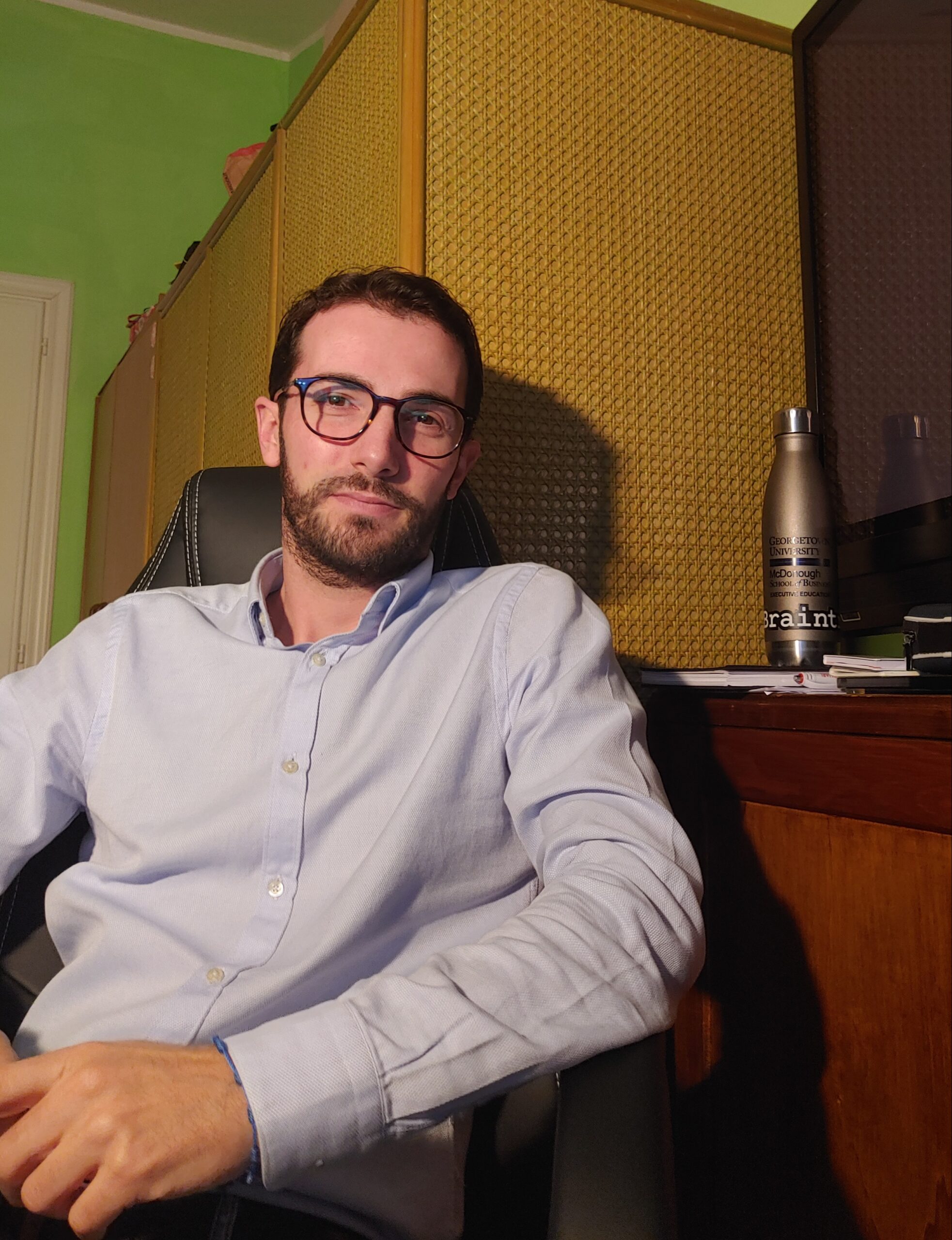Interview with Enrico Usai, CEO of Birdi

October 29, 2021
Interview with Enrico Usai, CEO of Birdi, a technological platform for precision farming.
Birdi in Sardinian means “green” and this is the spirit that animates this young innovative start-up that has a precise mission: to preserve the natural heritage by promoting environmental sustainability. How? Through a platform that thanks to the analysis of reliable and punctual data is able to help farms to optimize their resources.
What Birdi can do for your agricultural company
With the help of satellite images and drones, sensors installed on the ground, weather stations, Birdi is able to collect information whose processing determines beneficial effects on the development of a farm:
- optimisation of the company’s yield up to 25%
- decrease in water use up to 14%
- reduction of fertilizer use up to 10%

In addition to the analytical platform, Birdi is also very committed to training, one of the channels you should never give up to create awareness and knowledge. There are many educational courses that Birdi offers and in addition, for all the students and free, are also guaranteed the use of the technological platform.
The sectors in which Birdi operates are essentially three:
Monitoring of the agricultural system
Birdi provides a decision support system (DSS) in the agriculture field through precision farming techniques. This is aimed to encourage the smart management of farms in optimising yields and improving sustainability. It’s possible to achieve these results by providing a complete system capable of monitoring corporate performance at 360 degrees using specific sensors in the field (such as multispectral and hyperspectral optical remote sensing sensors) but also machine learning and artificial intelligence solutions to monitor the production and transformation phases of the product.
This way, it is possible to provide support to farms starting from the field until the supermarket shelves extending the benefits of the technologies involved to the entire agri-food chain.
Monitoring of fire areas
Through remote sensing, Birdi is able to distinguish the burnt vegetation from the healthy one. Using this technique will be easier to perimeter the burnt area, saving time and money, thanks to the high precision techniques used.
Monitoring of flooded areas
With satellite data provided by radar sensors, Birdi is able to monitor flooded areas from above and provide accurate and objective data about the places involved.
Let’s find out more about this beautiful reality through the words of Enrico Usai, CEO of Birdi.

Hi Enrico, nice to meet you and thank you for your time. Birdi: tell us this beautiful story.
Hello! First of all I want to thank you for this wonderful opportunity! Birdi was born from our desire to apply innovative technologies to the world of agriculture, which is still too linked to tradition. After a continuous confrontation with several leading farms in the sector we have understood what they really need:thanks to this we create a service capable of following companies from the field through to the supermarket shelves.
How and when was the idea of Birdi born?
Birdi was born as a natural continuation of the activities that had been carried out in previous years related to environmental monitoring with satellite technologies. In fact, since 2015 we have been experimenting with this type of data looking for an area where we can apply our knowledge. After a period of free and self-financed research on several issues we understood that the world of agriculture and environmental monitoring in general could be the right one. It is still fundamental in our social fabric but it needs technological innovations to become competitive again.
How long did it take to shape the project?
The embryo of the project, as already mentioned, took shape a few years ago but only after several months of prototyping in the laboratory and following a period of calibration carried out in the field we can say that we have developed a reliable product from which to start.
At the same time, we carried out a training course that led us to be incubated at the USMAC in San Francisco and that, subsequently, led us to develop our business plan and our business model at Georgetown University in Washington DC. This path has allowed us to test our idea with a competitive and complex market like the American one.
Who is Birdi addressing? How is the market responding?
Birdi caters to 3 large customer segments:
- The main customer segment identified is represented by medium-large farms that need to optimize their performance to be competitive in the market with quality products.
- Another segment of the market consists of professionals in the agricultural sector (agronomists, agricultural experts, etc…) who also represent an important driver for sales compared to the farms already mentioned.
- Finally, we provide services to the Public Administration regarding the monitoring of the territory especially with regard to certain natural disasters such as fires and floods.
Birdi, why did you choose this name?
Good question! I can say that we were definitely looking for a name that could stand out among the different companies in the market and that could best represent our initial idea.
Working in the field of remote sensing and digital cartography we discovered the curious story of the pigeons awarded the gold medal for military value in World War II and this has deeply fascinated us. In fact, thanks to the invention of a very small camera that could be easily mounted in the chest of birds they became fundamental for understanding the movements of enemies to determine the fate of conflicts. That is why we have dedicated our name and logo to these pioneering activities that started the science of Earth observation.
In addition, we also wanted to underline the strong bond with our land (the island of Sardinia, in Italy) calling the company Birdi that, as already mentioned, in Sardinian means green.
How did you launch your project?
In the first part of our journey we were obsessed with technological research but then, thanks to the mentoring activities received in the United States, we realized that to launch a project it is essential to acquire customers (or at least potential). This has radically changed our path of growth. In this context, in fact, we started to propose to farms to test our solutions also thanks to the participation in projects financed by the European Union that have allowed us to have direct contact with our potential customers in order to shape solutions according to their needs.
Let’s conclude with the most classic question: Projects for the future?
Our short-term projects include participation in several international fairs such as the Web Summit in Lisbon (which will take place from 1 to 4 November 2021) in which we hope to make ourselves known to investors and potential partners. With regard to 2022, we aim to enter the market with two different products related to precision farming and fire monitoring. In addition, we will continue to invest in training to try to improve ourselves and always be competitive.
Credits:








